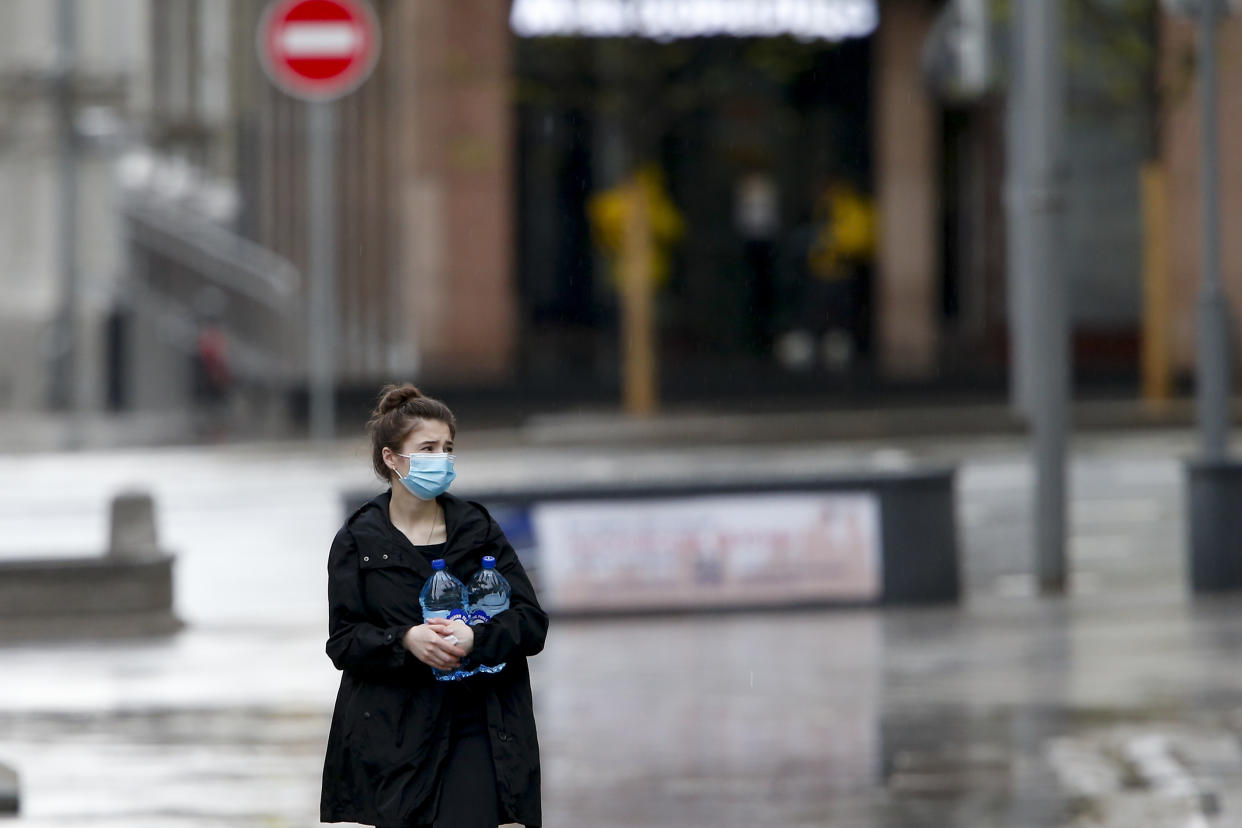Coronavirus: Britons more concerned about the pandemic than anyone else in the world

The British public are said to be the more concerned by the coronavirus outbreak than residents of any other affected country.
Scientists from the University of Cambridge asked nearly 7,000 people across Europe, Asia and the US how they felt about the pandemic.
UK residents were found to be the most anxious, while South Koreans appeared the most relaxed.
The scientists noted areas where residents were more concerned were more obliging with measures to combat the outbreak, like regular hand washing and social distancing.
Early research suggests the coronavirus is mild in four out of five cases, however, it can trigger a respiratory disease called COVID-19.

“Without pharmaceutical treatment, we are relying on people changing their behaviour to put the brakes on this pandemic,” said lead author Dr Sander van der Linden.
“The willingness to adopt protective behaviours such as frequent hand washing or physical distancing is likely to be influenced, in part, by how risky people perceive the virus to be.”
Latest coronavirus news, updates and advice
Live: Follow all the latest updates from the UK and around the world
Fact-checker: The number of COVID-19 cases in your local area
Explained: Symptoms, latest advice and how it compares to the flu
Between mid-March and mid-April the scientists asked more than 6,900 residents across 10 countries how they felt about the coronavirus.
Respondents rated how prevalent, life-threatening and worrying they perceived the infection to be.
Results – published in the Journal of Risk Research – suggest Britons are the most anxious, followed by Spaniards and Americans.
Germans came in fourth and the Swedish fifth, followed by Australians and the Japanese.
Perhaps surprisingly, residents of Italy – the former European epicentre of the outbreak – ranked fairly low in the list of concerned nationalities.
Only Mexicans and South Koreans reported a lower average risk perception.
The scientists noted, however, differences between the countries were small and all participants had a fairly high perception of risk.
The results also revealed the male participants were generally less concerned than their female counterparts, despite statistics showing more men are dying with the coronavirus.
Across all the countries, people who suspected they had caught the coronavirus perceived it to be a higher risk.
In several nations, residents who obtained information on the infection from their friends and family also ranked it as a greater threat.
Prosociality, behaviours intended to benefit others, was linked to greater concern over the virus in nine of the 10 countries.
“Appealing to prosocial motives can be an important part of solving social dilemmas during pandemics,” said study author Dr Claudia Schneider.
“For example, ‘clap for our carers’ campaigns help us to publicly signal prosocial intentions through shared sentiment and the spread of positive emotions.”
In contrast, the belief the government is “meddling” in our lives by imposing the lockdown was linked to people perceiving a lower risk from the virus.
“The perception the government is restricting people's freedom might cause psychological pushback among some people with strong individualistic world views,” said study author Dr Sarah Dryhurst.
“We see this expressed in anti-lockdown protests in the US and Germany, for example.”
Political views were not largely linked to coronavirus concerns, or lack of.
A more conservative outlook, however, was associated with lower levels of anxiety in the UK and US.

What is the coronavirus?
The coronavirus is one of seven strains of a virus class that are known to infect humans.
Others cause everything from the common cold to severe acute respiratory syndrome (Sars), which killed 774 people during its 2002/3 outbreak.
Since the outbreak was identified, more than 3.6 million cases have been confirmed worldwide, according to Johns Hopkins University.
Of these cases, over 1.1 million are known to have “recovered”.
Globally, the death toll has exceeded 252,300.
The coronavirus mainly spreads face to face via infected droplets expelled in a cough or sneeze.
There is also evidence it is transmitted in faeces and survives on surfaces.
The coronavirus has no “set” treatment, with most patients naturally fighting off the infection.
Those requiring hospitalisation are given “supportive care”, like ventilation, while their immune system gets to work.




